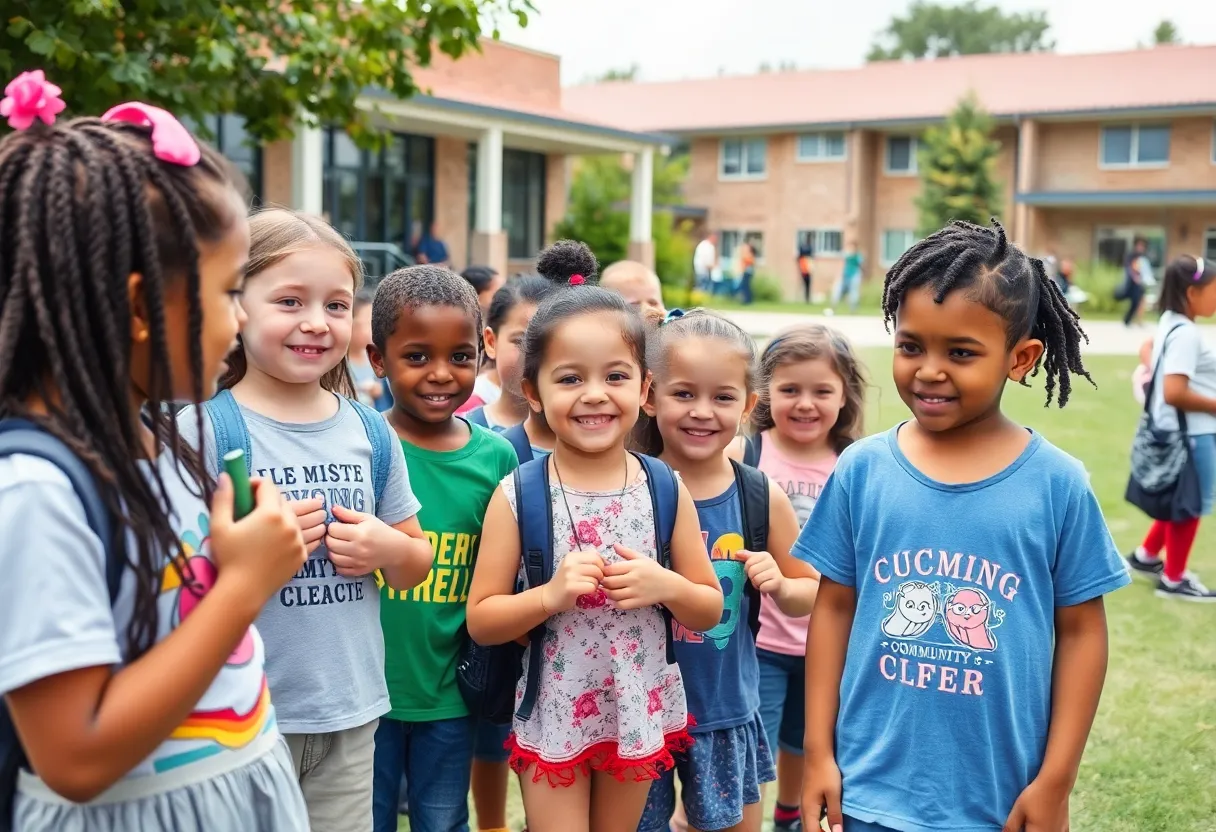News Summary
The Trump administration has paused over $6 billion intended for summer and after-school programs nationwide, prompting organizations to urge parents to find alternative childcare. The funding freeze, cited as a review due to alleged misuse of funds, raises concerns for programs like the Boys & Girls Clubs that rely on federal support. Many schools and organizations face uncertainty and potential program cancellations, significantly impacting children’s educational and developmental support.
Washington, D.C. – The Trump administration has enacted a freeze on more than $6 billion in funding intended for summer programs and after-school activities across the United States. This abrupt funding pause is forcing schools and organizations to notify parents to seek alternative childcare options for their children, raising concerns of program cancellations if funding is not quickly restored.
Organizations such as the Boys & Girls Clubs of Greater Augusta, which serves approximately 1,100 children daily and employs about 200 staff members, are particularly affected by this funding freeze. The organization’s president and CEO highlighted the reliance on federally allocated funds, which typically amount to $3 million annually. Without the expected federal reimbursement scheduled for July, the organization is likely to face dire limitations affecting the services it can provide for the youth.
According to a recent Gallup poll, nearly 30 million students participated in various summer programs in 2024, with an estimated 3.3 million of them attending summer school. Federal data reveals that 13% of K-12 students currently engage in after-school programming, illustrating the vital nature of these initiatives in enhancing educational engagement and providing crucial support for working families.
The sudden funding freeze was implemented without any advance notice from the Education Department, leaving numerous organizations in a state of uncertainty. The White House has cited claims of alleged misuse of grant programs as the reason for the review, including accusations that some funds were improperly utilized to promote a “left-wing radical agenda.” Specific instances mentioned involve reported misuse of funds in New York and Washington state, where allocations meant for educational purposes were purportedly directed towards illegal immigrant advocacy.
An Education Department spokesperson has indicated that the review of funding is an ongoing process, with no finalized decisions made regarding the suspended grants. As this situation unfolds, many organizations, like the Boys & Girls Clubs, could face significant reductions in the number of children served and the variety of programs available if the funding is not restored within the next month.
In Oregon, Heidi Sipe, the superintendent of the Umatilla School District, has advised families to look for alternative after-school arrangements as the future of their programs remains uncertain. The Umatilla District has relied on the 21st Century Community Learning Center grant for over 20 years, catering to more than half of its student population and offering essential services during critical after-school hours.
Advocates for educational programming have expressed astonishment at the unexpected funding cuts, especially since many of these programs had enjoyed bipartisan support and aligned with the administration’s stated focus on community development. This funding freeze adds to a troubling history of abrupt reductions affecting various educational and mental health resources during the Trump administration. Recently, sixteen Democratic-led states filed legal actions against the administration in response to a $1 billion cut to crucial mental health programs.
The potential repercussions of the funding freeze extend far beyond just after-school programming. The abrupt nature of the funding halt is viewed as a significant challenge to educational institutions nationwide, as organizations scramble to find alternative funding sources to maintain critical services. They face the daunting reality that securing sufficient funding within such a short timeframe is nearly impossible.
As this situation continues to evolve, communities are left to navigate the uncertain landscape of funding for summer and after-school programs, highlighting the critical importance of such initiatives in supporting the education and development of children across the country.
Deeper Dive: News & Info About This Topic
HERE Resources
Georgia Nonprofits Respond to ‘Big, Beautiful Bill’ Impact
Augusta Faces Severe Homeless Crisis as Numbers Soar
Augusta Initiatives Tackle Child Food Insecurity
State Senate Leader Raises Concerns Over Clean Energy Cuts
Golden Harvest Food Bank Expands Summer Harvest Program
Additional Resources
- The Hill: After School Trump Funding Freeze
- Wikipedia: Summer School
- The Augusta Press: Richmond County School System Offers Free Summer Meals
- Google Search: Summer Education Programs
- WRDW: Students Get Into Fight at Richmond County Summer School
- Google Scholar: After-School Programs
- WRDW: Augusta Aviation Academy Lets Young People’s Ambition Soar
- Encyclopedia Britannica: Child Education Programs
- WRDW: Where to Get Food for Kids While School is Out
- Google News: Summer Food Programs
Author: STAFF HERE AUGUSTA WRITER
The AUGUSTA STAFF WRITER represents the experienced team at HEREAugusta.com, your go-to source for actionable local news and information in Augusta, Richmond County, and beyond. Specializing in "news you can use," we cover essential topics like product reviews for personal and business needs, local business directories, politics, real estate trends, neighborhood insights, and state news affecting the area—with deep expertise drawn from years of dedicated reporting and strong community input, including local press releases and business updates. We deliver top reporting on high-value events such as Arts in the Heart Festival, Westobou Festival, and Masters Week. Our coverage extends to key organizations like the Augusta Metro Chamber of Commerce and Greater Augusta Arts Council, plus leading businesses in manufacturing and healthcare that power the local economy such as Textron Specialized Vehicles, Cardinal Health, and Nutrien. As part of the broader HERE network, including HEREAtlanta.com and HERESavannah.com, we provide comprehensive, credible insights into Georgia's dynamic landscape.


